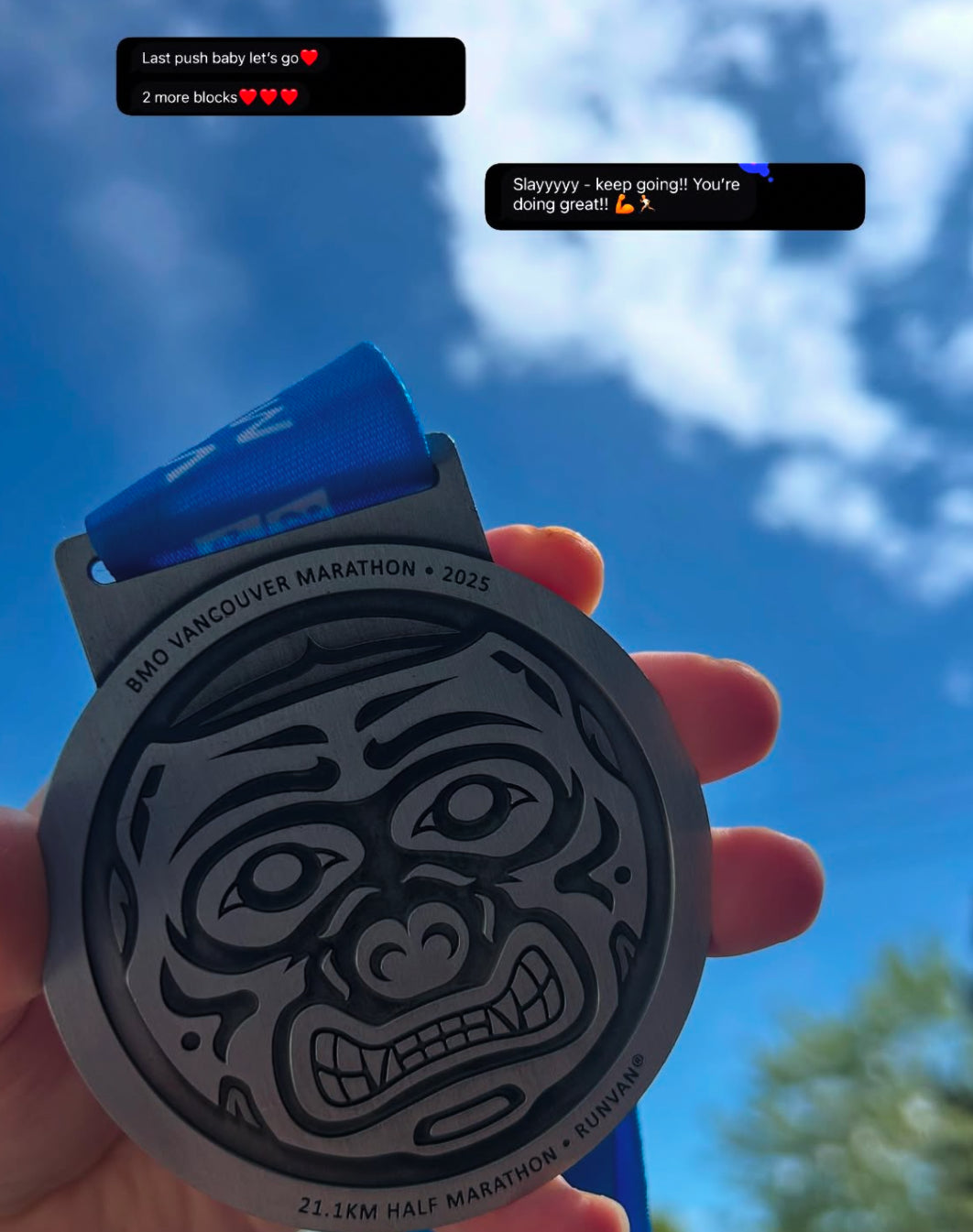
I Told Myself I Couldn’t Run. Then I Ran a Half Marathon
Share
Two years ago, I couldn’t run down the block.
You wouldn’t catch me running for fun, let alone as a form of exercise. I was that person who confidently (and repeatedly) declared: “I hate running.” “I can’t run.” I didn’t just dislike it, I didn’t understand the appeal. Why would anyone willingly choose to suffer through something so monotonous and so physically uncomfortable?
Slowly, subtly, I started seeing more and more women in my circles, both online and in real life, sharing their running journeys. It wasn’t about elite athleticism; it was about self-discipline, confidence, and community. And curiosity got the better of me.
So, I signed up for an 8K race. I walked and ran most of it, but when I crossed the finish line, I felt something surprising: pride. For someone who “couldn’t run,” completing 8K felt like I had quietly rewritten a small part of who I believed I was.
Fast forward almost two years, and I had the delusional idea to sign up for a half marathon.
Why? Honestly, I love a challenge, and I loved seeing so many amazing women run in a sport that we weren't even officially allowed to participate in officially until 1972. I had already run 8K, so why not more? 21.1 kilometres was a big leap, sure, but the version of me that once claimed she “couldn’t run” was starting to lose her grip on the narrative.
Suddenly, I told everyone I knew I had signed up, and I chose RUNNA as my training guide because I didn’t know where to begin, and I needed structure. I was running three times a week and pairing it with strength training, something I’d already been doing for years. It felt…doable.
In the early weeks of my 13-week training block, I had plenty of moments where I thought: “How the hell am I supposed to run a half marathon?" Then something amazing happened. 7km turned into 11km. Then 15km. Then 18. I found myself thinking: Am I actually doing this? Am I…a runner?!
And almost instantly, my inner critic piped up: You? A runner? You’re still slow. A real runner wouldn’t be running 7:30 per km.
That voice, the one that told me I wasn’t enough, that I didn’t belong in the running community, has been with me for a long time. But something running has taught me is this: we don't have to believe every thought we think. Just because a belief is familiar doesn’t mean it’s true.
Learning to separate from that voice was a huge part of my running journey. When things got hard, I’d say to myself, “You can do hard things.” It gave me the belief I needed to keep going. I even said it out loud sometimes, running down 10th Avenue: “I can do hard things.” That became my mantra throughout training, and it carried me to the finish line.
This got me thinking: what other limiting beliefs have I been holding onto? I began observing the way I show up in my daily life, the language I use about myself, and the invisible rules I’ve been living by, rules I never agreed to, but somehow internalized.
Finishing that half marathon wasn’t just about physical endurance. It was about proving that the limits I had placed on myself, I can’t run, I’m not a real runner, I’m too slow, I’m not built for this - were never real. They were just stories. Stories I now get to rewrite.
Running a half marathon gave me the confidence to show up in my life, believing I can do hard things and even have fun doing them. It made me realize that so many of my limits were just made-up rules in my head. While I proved to myself that I can run a half-marathon, it also showed me that I can accomplish many other things in life, and I'm not bound by my self-imposed limitations.
So whatever challenge you're facing, and whatever that inner voice is whispering about why you can’t, kindly tell it to mind its business and do it anyway. Because honestly? It’s not that serious. I fear as a collective, we're sometimes so scared of looking dumb, or silly or bad at something that we end up doing nothing at all.
We’re all capable of so much more than we imagine.
